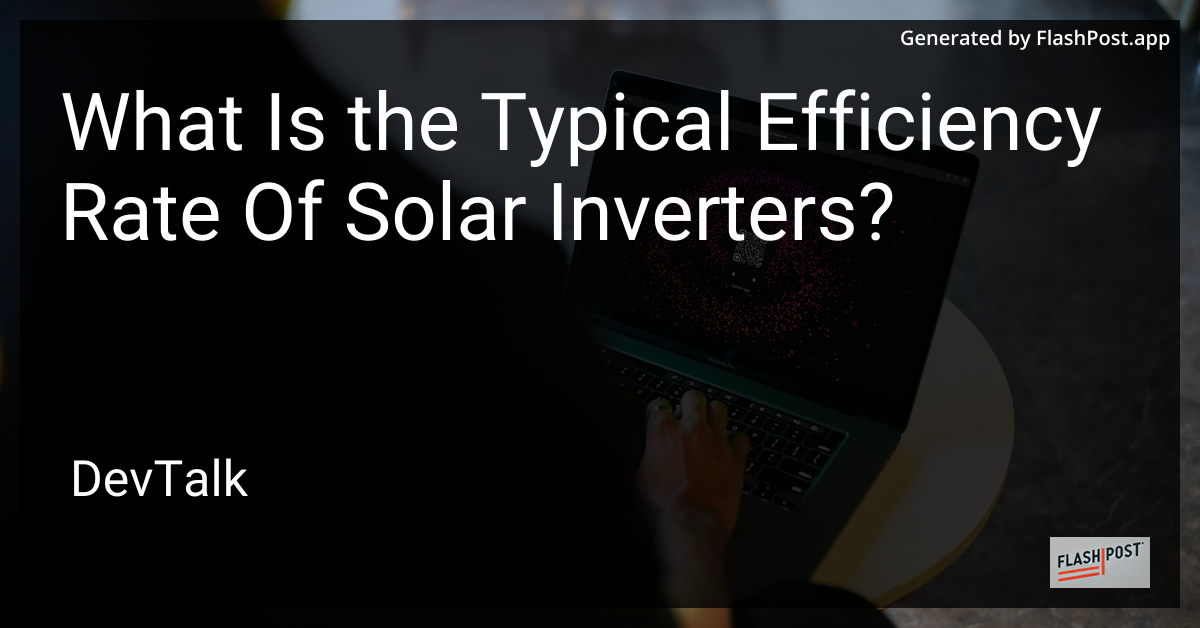What Is the Typical Efficiency Rate Of Solar Inverters?
 # The Efficiency of Solar Inverters: What You Need to Know
# The Efficiency of Solar Inverters: What You Need to Know
Solar energy is becoming an increasingly popular choice for environmentally conscious consumers.
A critical component of any solar power system is the solar inverter, which converts the energy harnessed by your solar panels into usable electricity for your home or business. But what is the typical efficiency rate of solar inverters, and why does it matter?
Understanding Solar Inverter Efficiency
Solar inverter efficiency is crucial for maximizing the output and cost-effectiveness of your solar energy system. This efficiency is expressed as a percentage, representing the amount of DC (direct current) power converted into AC (alternating current) power without being lost to the conversion process. In other words, the higher the efficiency rate, the more solar energy is effectively converted and utilized in your home.
Typical Efficiency Rates
Most modern solar inverters have efficiency rates ranging between 95% and 98%. This range signifies that only a small fraction of the harvested solar energy is lost during the conversion from DC to AC power. The efficiency of a solar inverter can be influenced by several factors including the type of inverter, system design, and environmental conditions.
Types of Solar Inverters
-
String Inverters: Commonly used in residential and commercial installations, string inverters typically have efficiencies between 96% and 98%. They are known for their reliability and ease of installation.
-
Microinverters: These are installed at each solar panel and are slightly less efficient, averaging between 95% and 97%. However, they are beneficial in systems where shading might be an issue, as they allow for panel-level optimization.
-
Central Inverters: Used in large-scale, industrial solar installations, central inverters can achieve efficiency rates up to 98%. They are ideal for vast systems with consistent sun exposure.
Why Inverter Efficiency Matters
When investing in a solar power system, the inverter's efficiency directly impacts the system's overall performance and financial returns. A higher efficiency inverter means more energy savings over time, as more of the captured sunlight is converted into useable electricity, reducing reliance on non-renewable resources and cutting down on energy bills.
Optimize Your Solar Setup
Maximizing your solar investment requires careful consideration of all components, including the inverter. Investing in a high-efficiency inverter is a step toward sustainable savings and energy independence. To further enhance your renewable energy setup, consider other solar solutions such as solar-powered garden water fountains or understanding the average life of solar flashlights. For those located in Hawaii, exploring solar energy providers can offer local insights tailored to your specific needs.
In conclusion, understanding the efficiency rate of solar inverters is key to optimizing your solar power system. By choosing high-efficiency inverters and complementing them with other renewable energy solutions, you can maximize your energy savings and contribute to a more sustainable future.